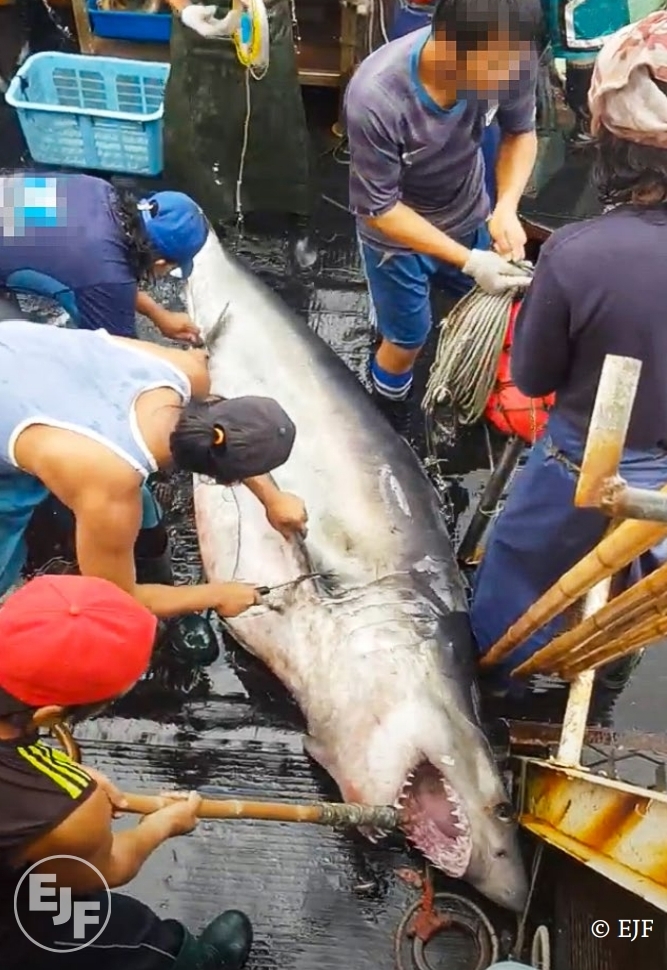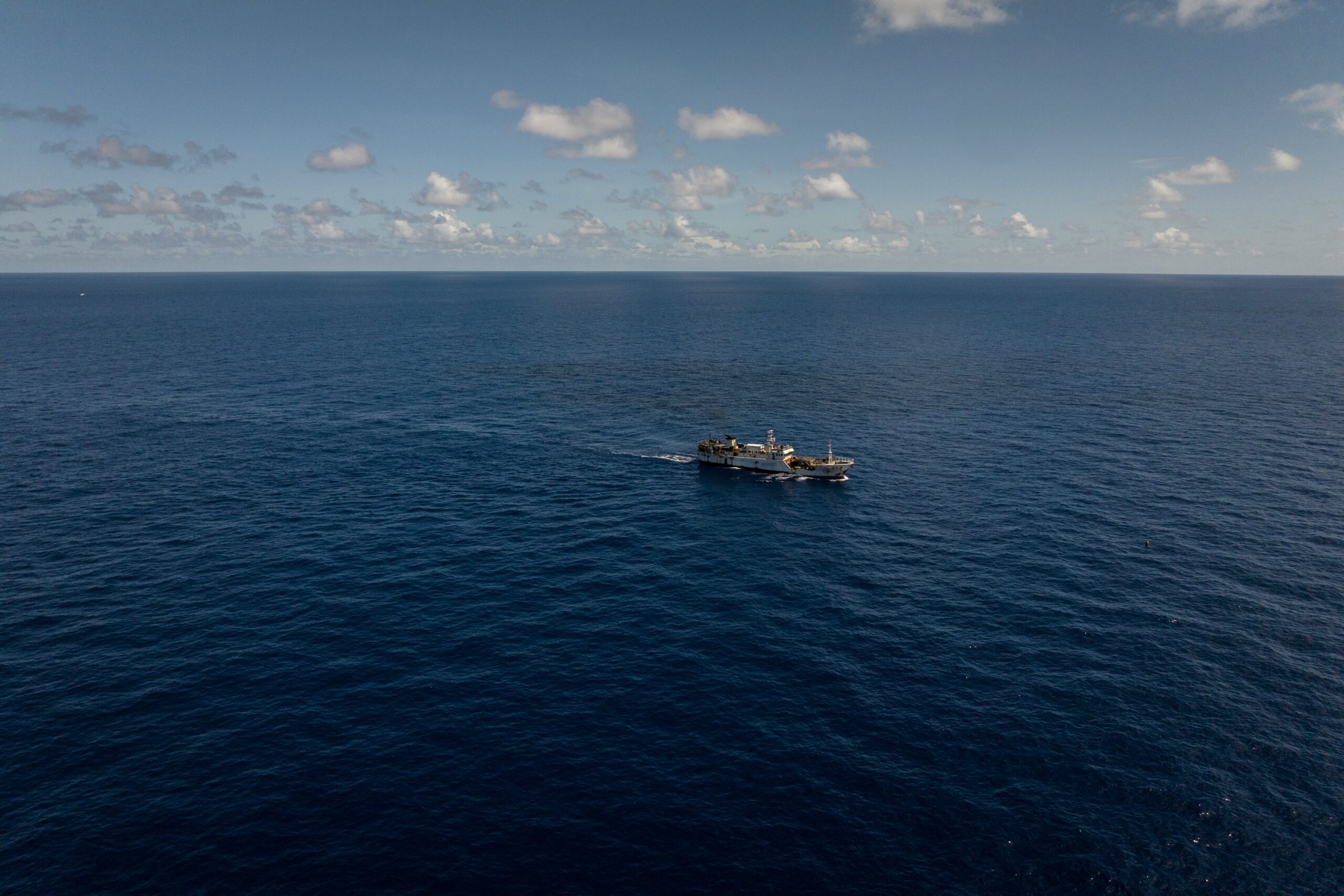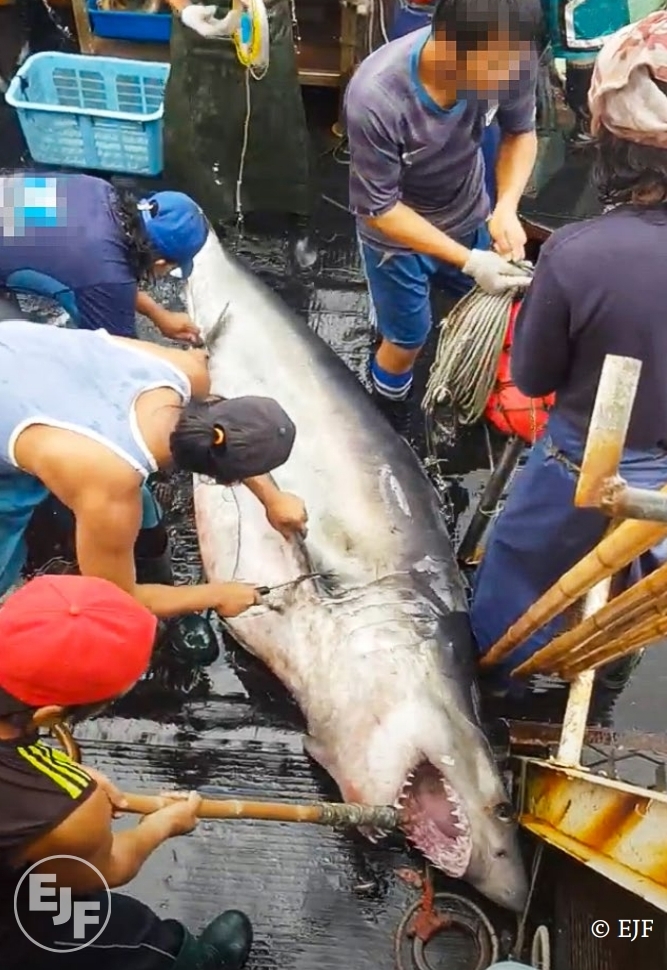By Dominic Allen
Arusha, Tanzania: Earlier this month the Environmental Justice Foundation (EJF) released an investigative report ‘TIDE OF INJUSTICE: Exploitation and Illegal Fishing on Chinese Vessels in the South-West Indian Ocean’ which raised questions on the issues of illegal fishing activities by Chinese vessels in the South-West Indian Ocean (SWIO).
According to the report 138 Chinese vessels have been authorized to conduct fishing activities on SWIO in 2023.
The EJF report shows that Chinese fishing vessels have dominance in the SWIO. While 95 of these vessels are targeting tuna fish and tuna-like species, the other 39 Chinese fishing vessels are targeting other species.
According to the EJF report, in 2022 alone, China’s reported catch of tuna in the Southwest Indian Ocean was 7,491 tonnes of yellowfin and bigeye tuna, and 5,930 tonnes of albacore.
In Tanzanian waters, Chinese vessels appear to be active between early November and late January. According to the Indian Ocean Tuna Commission (IOTC), the Government of Tanzania in an agreement with the China Overseas Fisheries Association (COFA) had given fishing licenses to 30 Chinese-flagged vessels between September 2022 and August 2023.
Based on the report findings, there are a number of Chinese fishing vessels that are operating illegally in countries like Mozambique without fishing licenses.
In Mozambique, where Fishing licenses in Mozambican waters are granted under the requirements set out in Decree No. 74/2017 ‘approving the Regulation for the Concession of Fishing Rights and Fishing Licensing (amended 2018). It appears that some Chinese-owned vessels are operating without fishing licenses, something that gives room for illegal fishing to take place.
In 2023, according to the Centro de Integridade Pública (CIP) a Mozambican NGO, in Mozambique, the majority of the Chinese fishing companies did not appear on the officially licensed lists as they operated illegally with the complicity of the Mozambican political elite. CIP said approximately 60 Chinese vessels without publicly declared licenses arrived in Mozambican waters between 2017 and 2018, something that they condemned as “an assault on Mozambican waters”.

Article 44 of Mozambique’s fishery law clearly states that fishing licenses may not be transferred but EJF discovered that some of the Chinese fishing companies have been transferred fishing licenses from shell companies with links to the highest leaders of the Mozambican government. Companies such as Motil Moçambique Lda., which was registered in May 2017 belonged to Florindo Nyusi, son of Mozambican President Filipe Nyusi, who was awarded fishing licenses despite appearing not to own any fishing vessels. These licenses were transferred to Nanjing Runyang Fishing Corporation, a Chinese-owned business, in June 2017 – just one month after Motil Moçambique Lda was registered.
Fisheries play a great role in the development of the country though the presence of illegal fishing by these Chinese vessels poses a threat to the development of the local communities including artisanal fishers whose lives depend on fisheries as it is a source of food and work.
EJF investigations have found evidence that Chinese vessels are engaging in illegal fishing in Mozambique waters. Some of the vessels have been found to routinely trawl for fish within 12 nautical miles of shore, while other vessels fishing within areas that are reserved for artisanal fishers, which is prohibited under Mozambican law.
Threat to the Blue Economy
According to the United Nations (UN), blue economies aim to promote economic growth, social inclusion, and improvement of livelihoods, at the same time ensuring environmental sustainability. Similarly, the World Bank has defined the blue economy as a sustainable use of the ocean’s resources for economic growth, improved livelihoods, and ocean ecosystem health.
The continuing Chinese investment in SWIO’s countries is living proof that the diplomatic relationship between China and these countries is getting stronger day after day. The question that one must ask is, is it a win-win relationship for both sides?
The presence of illegal fishing by Chinese vessels clearly poses a threat to the blue economy in SWIO’s countries.
The EJF report states that what is being preached by China on the blue economy is quite different from what Chinese vessels practice on the ground. According to the report, numerous studies have shown that Chinese vessels are associated with widespread and systematic illegalities on a global scale, undermining marine ecosystems and the communities that rely on them as well as severely abusing fishers on board.
The report finds that between 2017 and 2023 there were 86 unique cases of illegal, unreported, and unregulated (IUU) fishing or human rights abuses in the SWIO region by Chinese vessels. This is the reality of the sustainability of the so-called blue economy.
While investigating IUU fishing and human rights abuses by the Chinese-owned tuna fleet, EJF conducted interviews with 44 fishers, who had worked on 27 Chinese tuna longliners, 24 of which are believed to have been in the SWIO as of 2023, according to AIS signals.
All of the interviewees working on Chinese tuna vessels experienced or witnessed IUU fishing or human rights abuses. This includes shark finning and the deliberate capture and/or injury of vulnerable marine megafauna.
According to the EJF report, Chinese-owned vessels have been engaging in this cruel practice, in which sharks are deliberately or inadvertently caught, have their fins removed, and are then often thrown overboard while still alive.

Shark finning practices are prohibited by law in the SWIO region. Provision 6 of Tanzania’s Deep Seas Fisheries Management and Development Regulations 2021 states that “any fishing vessel in the EEZ […] shall not (a) engage in commercial fishing of sharks; (b) engage in shark finning in the course of fishing”. Despite the law clearly stating that these vessels continue to perpetrate shark finning.
35 out of 44 interviewees on the report said sharks were finned systematically, with their fins removed and their bodies thrown back into the ocean and the fins would be hidden on board the boats, often in special compartments or freezers of the senior crew.
“It [the fin] was put in a separate freezer in the captain’s [room]”; “it was obvious that we hid it, we had to keep it hidden. Because when we were heading to Mauritius, there was an inspection so we had to hide it very well because sharks are protected animals”. said the interviewees.
In the EJF report, it was mentioned that sometimes during inspections they had to throw away fins, illegal fishing tools, or anything illegal.
“It was thrown away slowly, little by little, before the police approached the vessel”; “The bosun, the captain ordered us to do it,” said the interviewees, whereby around 40 kilos of fin were thrown on that day.
Apart from that, Chinese-owned fishing vessels in the SWIO region are capturing or injuring vulnerable marine megafauna, this is prohibited by the laws and regulations due to the fact that marine creatures like whale, sharks, sea turtles, and others are characterized by low-growth and fertility rates and late maturity and this makes them more vulnerable.
The report further reveals that species like false killer whales (FKWs), dolphins, turtles, and manta rays were reported by 26 of the 44 (59.1%) crew. “We slaughter it, remove the intestines, and place it in the freezer,” said one of the interviewed crew members.
“We frequently get it. We would cook and process it because the captain and the bosun like it, ” they added. The capture and deliberate processing on board of rays are in direct contravention of IOTC regulations, which “prohibit all vessels retaining onboard, transshipping, landing, storing, any part or whole carcass of mobulid rays caught in the IOTC Area of Competence”.
The study brought new insight to the public on what is really going on in the SWIO region. IUU fishing by Chinese-owned vessels in the SWIO region has an impact on the marine ecosystem through overfishing and pollution, somewhat reducing the expected gains from the blue economy.
However, on April 12, 2024, in the press conference of the China Foreign Ministry spokesperson Mao Ning in response to the EJF report findings of illegal fishing by Chinese-owned vessels, she denied what she called ‘the allegations’. Mao said China attaches great importance to the protection of the environment, workers’ rights, and interests.
“We follow a tolerance policy towards violation of the laws and regulations and make sure that crew members receive the working conditions and remuneration they deserve in accordance with the laws. We oppose false allegations and smears which have no factual ground at all.” said Mao Ning.
Despite all EJF findings, the Chinese government has sided with such marine criminal activities. Something makes the world wonder whether they care about the Blue economy or not for the sake of today and future generations.
EJF has recommended that China instead should ensure that the information on Chinese DWF vessels uploaded to the FAO Global Record of Fishing Vessels, Refrigerated Transport Vessels, and Supply Vessels by China is comprehensive and up to date.
As human rights abuses are also exposed in the report, EJF argued that China should ratify and implement the ILO Work in Fishing Convention C188 and other relevant ILO Conventions to address issues around labour abuses, as well as the Cape Town Agreement for the Safety of Fishing Vessels and the STCW-F. Further protections for workers on board vessels could include the creation of a specific offense for the use of forced or bonded labour by operators and the requirement of mandatory crew lists for DWF vessels.














